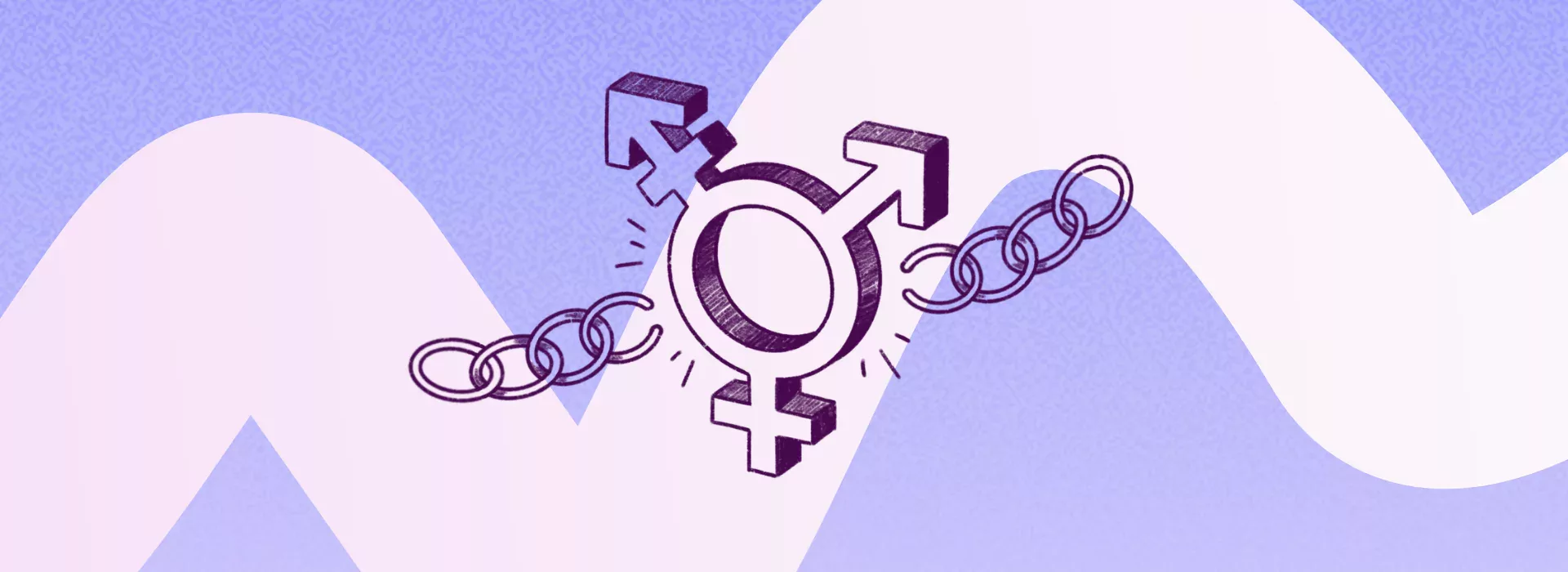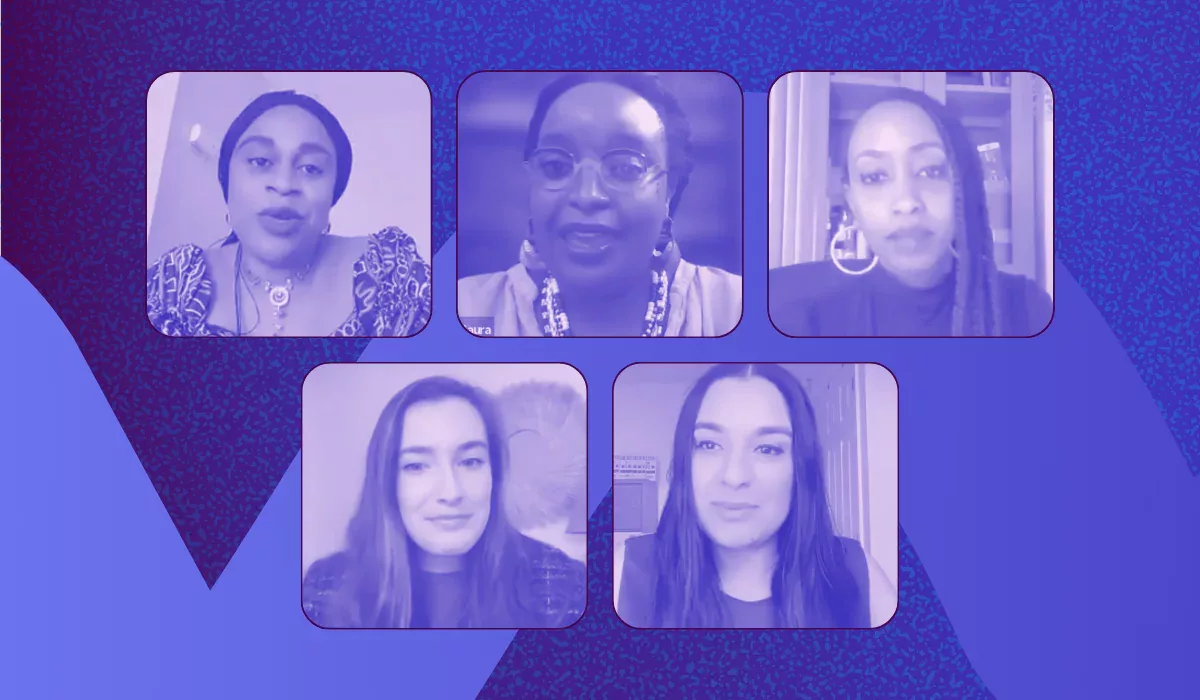
The gender binary is a tool of control — and it hurts us all
In just the past two weeks, the UK Supreme Court decided that the legal definition of “woman” under the Equality Act 2010 excludes trans women, Hungary’s parliament voted to constitutionally mandate that all Hungarians be classified as either male or female, and the US Department of Health and Human Services launched a form to report medical providers who offer gender-affirming care.
These developments are part of a broader and escalating crusade to enforce the gendered system of power — which harms all of us, not just trans and intersex people.
The dominant gender system we experience today — particularly in contexts within or colonised by the West — relies on a binary classification structure that divides us into two fixed categories: male/men/boys and female/women/girls. Our categorisation is considered inherent and immutable, following from the sex we are assigned at birth based on the appearance of our genitalia, and reinforced by social norms, hormones, chromosomes, and other sex characteristics. This binary is actualised throughout our lives as we are expected to identify with, appear as, and fulfil the social role of our predetermined gender and interpret everyone else within that structure, with all the assumptions and stereotypes that follow.
But the gender binary is not universal — it was imposed by the West. The binary has served as a tool of colonial control, weaponised to assimilate and annihilate the expansive gender identities that have existed for millennia across cultures. It has worked hand in hand with racism and capitalism to establish a system of power across gender, race, and class that continues to oppress people on the margins, acutely harming people who are trans, women, Black, Indigenous, and people of colour. The colonial order established racialised gender hierarchies, positioning whiteness as the norm while casting Black, brown, and Indigenous people as transgressors to be excluded from public life. Racism, sexism, homophobia, transphobia, and classism are not separate forces — they are interlocking tools of control that place those at the intersections in the crosshairs.
This system divides us by design — to make us easier to govern, exploit, and dominate, with “deviants” paying the highest price.
Across the world, non-Western cultures had (and in many cases still have) expansive gender systems that the West attempted to eradicate. In Hawai‘i, the māhū — who live “in the middle” embracing masculine and feminine traits — were historically valued and respected as caretakers, healers, and teachers of ancient traditions before American missionaries sought to violently abolish these practices. In pre-colonial Yorùbá society, law, language, and religion were not organised or segregated by gender. Yet Thailand, which was not formally colonised by the West, has retained their historic multitude of gender identities including kathoeys and toms, and gender-affirming care is far more accessible than many countries in the West — though there is still work to be done.
The movement for gender liberation has grown, and governments are pushing back. In an attempt to reassert control, governments are enforcing the gender binary through systems of policing, prisons, immigration, healthcare, housing, employment, and the courts — redrawing the boundaries of our existence with dangerous consequences. These institutions are rooted in the violent legacies of white supremacy, settler colonialism, imperialism, genocide, slavery, patriarchy, militarism, and racial capitalism.
This backlash doesn’t just target trans people — it threatens all of us, as our lives, bodies, and autonomy are confined into ever-narrower definitions of who we are allowed to be.
Policies that seek to redefine womanhood on the basis of “biological sex” lend heightened authority to already violent institutions, like the police, to surveil, control, and abuse people. The UK, for example, has opened the door for male officers to strip search anyone they suspect is a trans woman, which endangers all women and gender non-conforming people. There is nothing to stop this power from being used against a cis woman with short hair, a tall frame, a muscular figure, a masculine presentation, conditions like polycystic ovary syndrome, or racialised features that fall outside white standards of femininity. The same policies used to harm trans people are already being used to target and oppress cis Black and brown women as they are more likely to be deemed “masculine” or gender non-conforming and therefore treated as suspicious, aggressive, or deceptive. These policies won’t lessen the fear of violence that women face, but deepen it.
Laws that ban trans people from accessing public bathrooms aligned with their identity do nothing to improve safety and have already led to countless stories of harassment and abuse not only of trans people, but of cis girls and women who don’t look “feminine enough.” And legislation limiting access to gender-affirming care — or targeting the doctors who provide it — places everyone’s ability to make informed decisions about our own bodies and lives on the line, creating dangerous precedent across all areas of health and wellbeing.
These policies don’t just target trans people — they entrench a regime where everyone is policed, scrutinised, and punished for failing to conform. All too many cis women and feminist organisations have remained silent or even celebrated the recent decisions, but this paves the way for further attacks that fracture our movement and green-light the erosion of our freedoms. We cannot accept the demonisation of our trans and intersex siblings and the destruction of our collective autonomy.
We have real battles to fight against the systems that harm all of us — and we need to fight them together. Here’s how you and your organisations can take action:
- Support trans-led organising. Elevate the work of your local trans organisations, particularly those led by Black, brown, and Indigenous trans folks. Donate if you can and share their messages. Here are just a few organisations:
United States: Marsha P. Johnson Institute, TransLatin@ Coalition, Two Spirit Nation, For The Gworls
United Kingdom: TransActual, Trans+ Solidarity Alliance, African Rainbow Family
Ireland: Trans Healthcare Action, Trans Harm Reduction, Queer Asian Pride Ireland
Australia: Trans Justice Project, BlaQ Aboriginal Corporation
New Zealand: Gender Minorities Aotearoa, InsideOUT - Show up — loudly and materially. Share your solidarity, join protests, contact your elected officials, prompt your networks to take action, and disrupt the system. Use your platforms, your time, and your resources in whatever ways you can.
- Follow and elevate trans journalists and writers. Mainstream media often serves as a mouthpiece for those in power, so get your information from publications like Erin in the Morning (US) or What The Trans (UK).


